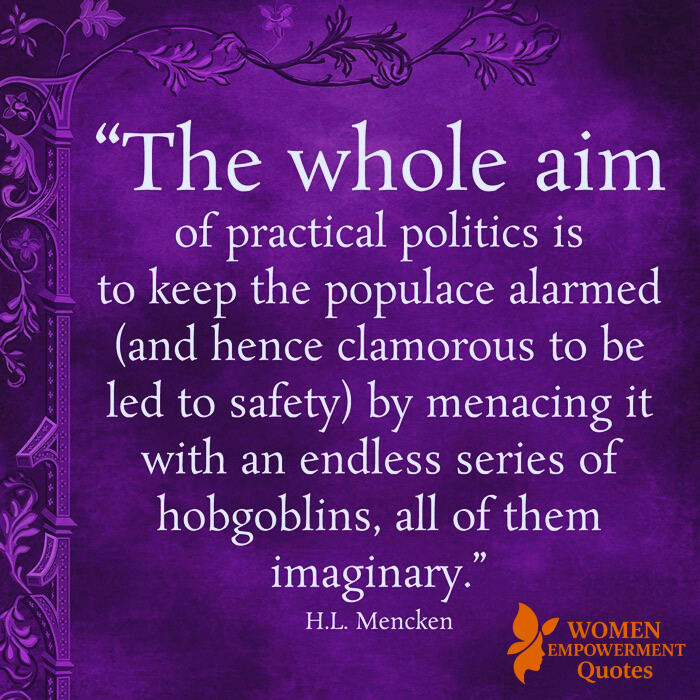
The Politics of Fear: Seeing Beyond the Illusions
In the world of politics, fear has long been a tool of power. Rather than serve as protectors or problem-solvers, many political figures have mastered the art of manipulating public emotion—especially fear. H.L. Mencken, the sharp-witted journalist and satirist, once wrote that practical politics often consists of creating imaginary threats—what he called “hobgoblins”—to keep the people alarmed and eager to be led.
This tactic is unsettlingly effective. Politicians fabricate looming dangers—some exaggerated, others entirely false—tailored to tap into the public’s deepest anxieties. Whether it’s the threat of invasion, societal collapse, or economic disaster, these narratives are used to distract and control. As long as fear rules the conversation, reason takes a back seat. People, in their desperation for safety, begin surrendering their freedoms, their critical thinking, even their values—clinging instead to those who claim to offer protection.
The true danger here isn’t just the imaginary hobgoblins. It’s the slow erosion of a society’s ability to question, to think independently, and to see clearly. When fear becomes the lens through which we interpret the world, we are easily manipulated, and the real, pressing issues—climate, justice, inequality, corruption—remain in the shadows.
Breaking this cycle demands more than hope. It requires intention. We must cultivate the ability to question narratives, seek multiple perspectives, and foster a culture where open dialogue and thoughtful dissent are welcomed, not silenced.
H.L. Mencken’s Enduring Warning
Mencken’s voice, though rooted in the early 20th century, still echoes in today’s turbulent discourse. He was never afraid to call out manipulation, censorship, and the misuse of power. Through his biting essays and satirical works like The American Mercury, he pushed readers to confront uncomfortable truths.
He also stood boldly for freedom of expression—even when it meant defending views he personally disagreed with. That principled stance—one that refuses to silence even the unpopular—remains a powerful lesson for a generation navigating cancel culture, political polarization, and media distortion.
Mencken reminded us that politics, when guided by fear and illusion, becomes a theater—entertaining at best, dangerous at worst. His legacy urges us not to be passive observers, but thoughtful participants in our society.
Let Us Not Be Fooled
Fear will always be a tempting tool for those who crave control. But we are not powerless. We can choose to question, to seek clarity, to reject the easy lie in favor of the hard truth. Practical politics should never aim to keep the people in fear—it should aim to empower them.
A free society depends on a thinking public. And the more we understand the illusion of hobgoblins, the less power they hold over us.
Quotes Worth Remembering:
“The most effective way to destroy people is to deny and obliterate their own understanding of their history.” – George Orwell
“Those who can make you believe absurdities can make you commit atrocities.” – Voltaire
“All tyranny needs to gain a foothold is for people of good conscience to remain silent.” – Thomas Paine
“If those in charge of our society… can dominate our ideas, they will be secure in their power.” – Howard Zinn
“Washing one’s hands of the conflict between the powerful and the powerless means to side with the powerful.” – Paulo Freire
Write Your Prayer